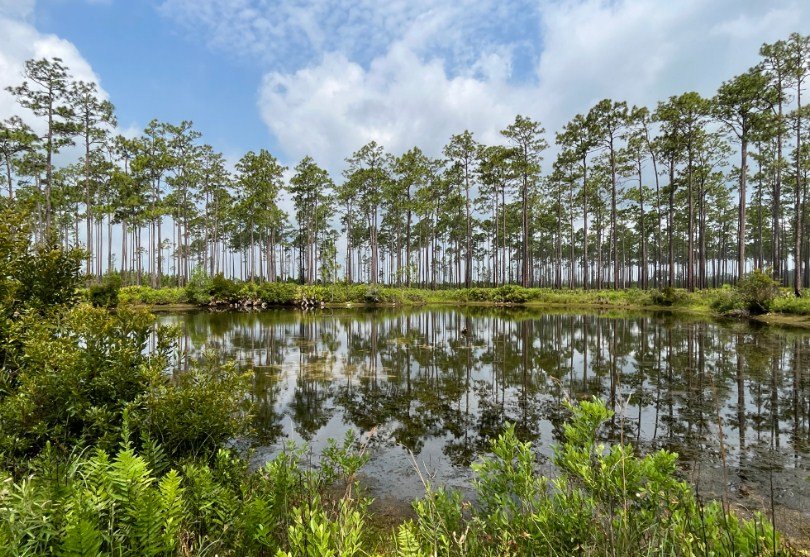The Okefenokee National Wildlife Refuge, one of the largest and most pristine wetlands in the world, is under threat from a proposed strip mining project near its border. A new bill introduced by a south Georgia lawmaker aims to slow down the mining permits, but environmentalists are not satisfied with the measure.
Mining proposal sparks controversy
The mining project is proposed by Twin Pines Minerals LLC, an Alabama-based company that wants to extract titanium and zirconium from the sandy soil of Trail Ridge, a geological formation that runs along the eastern edge of the Okefenokee Swamp. The company claims that the project will create jobs and economic benefits for the region, and that it will not harm the swamp or its wildlife.
However, many environmental groups, scientists, and local residents oppose the project, fearing that it will damage the hydrology, ecology, and beauty of the Okefenokee Swamp, which is home to more than 600 species of plants and animals, including many that are threatened or endangered. The swamp also attracts more than 700,000 visitors annually, who enjoy boating, fishing, birding, and camping in the wilderness.
The opponents of the mining project argue that the project will require pumping millions of gallons of water daily from the Floridan Aquifer, which feeds the swamp and provides drinking water for millions of people. They also worry that the mining will create noise, dust, and light pollution, and that it will increase the risk of chemical spills, fires, and accidents.

New bill seeks moratorium on mining permits
In response to the public outcry, state Rep. John Corbett, a Republican whose district borders the Okefenokee Swamp, filed a bill on February 18, 2024, that calls for a three-year moratorium on new surface mining permits in areas of Georgia that today sit untouched. The bill, HB 906, would also require the state Environmental Protection Division (EPD) to conduct a comprehensive study on the impacts of mining on the natural resources and the economy of the state.
Corbett said that his bill is intended to protect the Okefenokee Swamp and other sensitive areas from mining activities, and that he hopes to find a balance between environmental conservation and economic development.
“I’m not anti-mining, I’m not anti-business, I’m not anti-jobs,” Corbett said. “But I am pro-Okefenokee. And I think we need to take a step back and look at the big picture and see what the long-term effects of this are going to be.”
Environmentalists demand stronger action
However, Corbett’s bill has received mixed reactions from environmentalists, who say that it does not go far enough to stop the mining threat. They point out that the bill does not apply to existing mining permits, and that it does not prevent the EPD from issuing draft permits to Twin Pines Minerals, which the agency did on February 9, 2024.
The draft permits, which are open for public comment until March 11, 2024, would allow the company to proceed with the first phase of its mining project, which covers about 2,400 acres of land near the swamp. The company plans to expand the project to more than 12,000 acres in the future.
The environmentalists also criticize the bill for not addressing the federal role in the permitting process. The U.S. Army Corps of Engineers, which has jurisdiction over wetlands and waterways, withdrew from reviewing the mining project in September 2020, after the company revised its application to avoid direct impacts to the swamp. The environmentalists argue that the Corps should resume its oversight and conduct a rigorous environmental impact statement, as required by the Clean Water Act.
“We appreciate Rep. Corbett’s efforts to protect the Okefenokee, but his bill is not enough to stop this destructive mining project,” said Alex Kearns, chair of the Georgia chapter of the Sierra Club. “We need the state and federal agencies to do their jobs and enforce the laws that protect our natural resources and our communities. We need them to say no to Twin Pines Minerals and yes to the Okefenokee Swamp.”

Comments